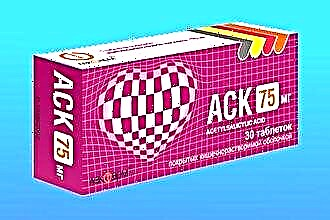Fir oil is a natural antibiotic with analgesic, anti-inflammatory, wound healing and decongestant properties. This natural product stimulates the immune system, which is due to the ability to stop the development of pathogens. Using fir oil for a runny nose, it is possible to eliminate inflammation and swelling in the nasopharynx, thereby facilitating nasal breathing.
 Essential oils are concentrated solutions, therefore, non-observance of the dosage recommended by experts leads to allergic reactions.
Essential oils are concentrated solutions, therefore, non-observance of the dosage recommended by experts leads to allergic reactions.
To relieve the signs of rhinitis, the drug must be diluted with water or base oil.
The systematic use of a cold remedy accelerates the passage of mucus, which helps to cleanse the nasal passages and, accordingly, eliminate congestion.
About the drug
Can you put fir oil in your nose? According to phytotherapists, it is undesirable to bury the drug in the nasal passages in a pure form. Irritation of the mucous membrane can lead to swelling and deterioration of well-being. In addition, oily liquids should not be used to treat rhinitis in children under 1 year of age. Aspiration of oils can cause the development of fatty pneumonia, which leads to the formation of foci of fibrosis.
The natural antibiotic contains vitamins and phytoncides that have therapeutic properties. Fir extract helps to normalize metabolism, accelerate regeneration processes and reduce the viscosity of liquid secretions in the nasopharynx. The therapeutic effect of the drug is due to the presence in its composition of components such as:
- camphene;
- borneol ether;
- terpinene;
- myrcene;
- dipentene;
- sabinen;
- phytoncides;
- deanal.
The active components of the agent inhibit the reproductive function of pathogens in the foci of inflammation, which leads to a decrease in the number of pathogenic agents in the nasopharyngeal mucosa. Applying fir oil for a cold for several days, you can stop the manifestations of a cold and prevent the development of inflammation in the paranasal sinuses.
Therapeutic action
 Fir extract helps to eliminate all clinical manifestations of acute and chronic rhinitis that occurs with the development of colds.
Fir extract helps to eliminate all clinical manifestations of acute and chronic rhinitis that occurs with the development of colds.
A decrease in the secretory activity of the glands in the ciliated epithelium leads to unblocking of the nasal passages and facilitates breathing.
The therapeutic effect of the drug is due to the following properties:
- immune-strengthening - increases local immunity by reducing the concentration of pathogens in the foci of inflammation;
- mucolytic - changes the pH level of mucus, thereby reducing its viscosity and, accordingly, accelerating the evacuation process;
- decongestants - reduces vascular permeability and normalizes lymph outflow, as a result of which the amount of intercellular fluid in inflamed tissues decreases;
- anti-inflammatory - interferes with the synthesis of inflammatory mediators, which accelerates the regression of catarrhal processes in the ciliated epithelium;
- antiseptic - eliminates pathogenic bacteria, which reduces the risk of purulent processes in the paranasal sinuses;
- analgesic - reduces the sensitivity of pain receptors, thereby eliminating discomfort in the nasopharynx;
- tonic - normalizes lipid and protein metabolism, thereby normalizing tissue trophism.
Important! Essential oil cannot replace antibacterial drugs. In the treatment of sinusitis and complicated rhinitis, it is necessary to use it in combination with medications.
Indications for use
To stop the local manifestations of colds, herbalists recommend using fir oil for the common cold. The use of antimicrobial and mucolytic agent helps to resolve catarrhal processes in the nasal and oropharyngeal mucosa.
To accelerate recovery, the drug can be used for:
- tonsillitis;
- chronic rhinitis;
- laryngitis;
- pharyngitis;
- pneumonia;
- flu;
- sinusitis.
Essential oils cannot be used to treat bronchial asthma and allergic rhinitis. Volatile components of the agent can provoke an allergic reaction and contraction of the muscles of the bronchial wall.
The essential oil liquid can be used not only for treatment, but also for the prevention of colds. Fir extract helps to destroy rhinoviruses that provoke the development of inflammation in the nasopharyngeal mucosa. For this reason, ENT doctors recommend using an antiseptic in the autumn-spring period to prevent bacterial and viral rhinitis.
Nasal drops
Applying fir oil for the common cold, it is possible to quickly stop the local manifestations of ENT disease. Regular use of the product leads to a decrease in the amount of mucus in the nasal passages, regression of inflammation and epithelialization of tissues. For this reason, a natural antibiotic can be used to treat rhinitis and sinusitis in the early stages of development.
There are several ways to prepare nasal drops:
 mix 100 ml of boiled water with 4-5 drops of fir extract;
mix 100 ml of boiled water with 4-5 drops of fir extract;- mix 1 tbsp. l. olive oil with 2 drops of the drug;
- in equal proportions, mix the antiseptic with sea buckthorn oil.
To speed up the healing process, you need to bury fir oil in your nose in compliance with several important rules:
- before the procedure, clear the nose of accumulated mucus;
- warm the solution to a comfortable temperature (no more than 38 degrees);
- after instilling the product, press the wings of the nose against the cartilaginous septum;
- after 10 minutes, blow out the accumulated mucus from the nose;
- lubricate the wings of the nose with a little essential oil.
Important! Do not instill more than 2 drops of the drug into the nose. Overdose can lead to irritation of the nasopharyngeal mucosa.
Inhalation
Inhalation of the vapors of the essential oil plant promotes the instant penetration of active components into the lesions. Due to the disinfecting and antiseptic effect of the drug, the pathogenic flora in the nasopharynx is destroyed. Daily inhalation accelerates the regression of inflammation, which helps to eliminate the symptoms of the common cold.
How to use fir oil for a cold? To achieve the necessary therapeutic results, the following recommendations of specialists should be taken into account during the procedure:
- add 15 drops of fir extract to 1 liter of boiling water;
- cool the solution to a temperature of 50 degrees;
- covering your head with a towel, breathe over the container with the solution for 10 minutes;
- clear the accumulated mucus from the nasopharynx.
To prevent the occurrence of allergic reactions, inhalations should be performed no more than 2 times a day.
 Inhalation of the drug promotes the immediate absorption of the components of the drug by the ciliated epithelium, which affects the rate of regression of inflammation.
Inhalation of the drug promotes the immediate absorption of the components of the drug by the ciliated epithelium, which affects the rate of regression of inflammation.
The systematic carrying out of the procedure has a beneficial effect on the functioning of the respiratory system, which is due to an increase in the local and resorptive effect.
Pediatricians advise against the use of oil inhalations when treating children under the age of 2-3 years. Vapors of ether can provoke a spasm of the bronchi, as a result of which the child may have a suffocating cough.
Rubbing
Rubbing the chest with essential oils helps to accelerate blood circulation.Improving the microcirculation of blood in the nasopharynx stimulates the outflow of lymphatic fluid from the ciliated epithelium and more intensive oxygen supply to the tissues. Intensive gas exchange in cells accelerates metabolic processes, as a result of which local immunity increases.
Using fir oil in the nose for a cold, you should pay attention to the following points:
- to prepare a grinding emulsion, mix vegetable and fir oil in a ratio of 3: 1;
- heat the oil solution to 40 degrees;
- Rub the product into the chest, bridge of the nose and wings of the nose.
After the procedure, walks on the street and serious physical activity are undesirable. Rub before bed to prolong the healing effect of the drug. For the treatment of complicated colds, you can perform the procedure 2-3 times a day with an interval of 4-5 hours.
Contraindications
The essential oil preparation contains components that can provoke allergic reactions. Therefore, before using an antiseptic, you need to consult with an otolaryngologist. Ignoring contraindications leads to burning, itching and swelling in the nasopharynx.
To eliminate the likelihood of side effects, experts do not recommend using essential oil when:
 pregnancy;
pregnancy;- bronchial asthma;
- allergy tendencies;
- damage to the nasopharyngeal mucosa;
- hepatic and renal failure;
- tendency to nosebleeds;
- individual intolerance to the components of the product.
Test on the skin before putting the oil solution into your nose. This will determine the presence of an allergic reaction to the components of the drug.

 mix 100 ml of boiled water with 4-5 drops of fir extract;
mix 100 ml of boiled water with 4-5 drops of fir extract; pregnancy;
pregnancy;

